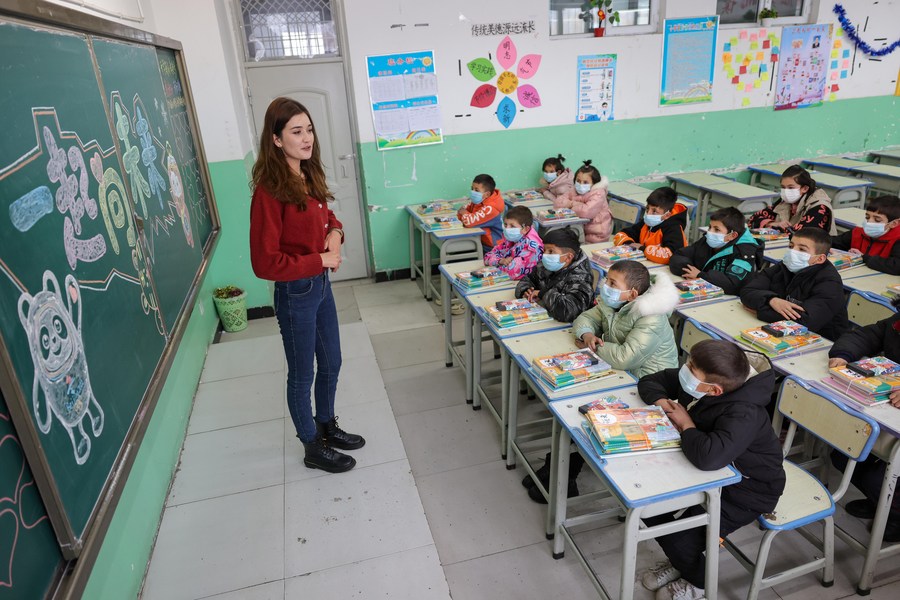Better education being provided for China's ethnic groups

Students have class at a boarding primary school in the county seat of the Taxkorgan Tajik autonomous county, Northwest China's Xinjiang Uygur autonomous region, on Feb 26, 2022. [Photo/Xinhua]
Specialized cultural and education policies have been implemented according to China's 56 ethnic groups in order to fully protect people's rights to education and to provide firm support for localized development, according to experts attending a recent symposium.
The International Symposium on Educational Development and Rights Protection in China's Ethnic Minority Areas was held on Saturday in Beijing and was co-organized by the Institute of Ethnology and Anthropology of the Chinese Academy of Social Sciences and the China Society for Human Rights Studies. The symposium was a sideline event of the 50th session of the United Nations Human Rights Council.
Experts at the event said that with strong support from the government and its promotion of local socioeconomic development, education and culture, ethnic minority areas such as the Tibet autonomous region have made rapid progress. They added that along with the progress, local culture and languages have been protected.
In Tibet, 16 periodicals, 12 newspapers and more than 7,600 books with about 44 million copies in the Tibetan language have been published as of December, said Wang Yanzhong, director of the Institute of Ethnology and Anthropology of the CASS.
"Education in Tibet is advancing with each passing day," he said. "A complete modern education system has been established there."
From 2012 to 2021, the central government invested some 215 billion yuan ($32 billion) in education in Tibet. As of 2012, a 15-year public education system has been provided to people in Tibet-meaning children can participate in free education from kindergarten to high school. This type of development is ahead of other regions in the country, and Tibet's financial-aid system for students covers all levels of education, according to Wang.
The level of education and length of schooling for people in Tibet have also been greatly improved.
The number of people with college degrees per 100,000 people in the region doubled from 5,507 per 100,000 in 2010 to 11,019 per 100,000 in 2020.
The average amount of time spent at school among those who have recently joined the labor force is 13.1 years-approaching the national average-providing Tibet with better human resources for its own development, he said.
Boarding schools play a key role in safeguarding children's education rights, particularly for those from poor rural areas.
Students and families in these areas can voluntarily take advantage of boarding schools in bigger cities. Such institutions give children who live far away access to a better standard of education. All compulsory education is offered at no cost at these schools, said Chang An, a professor at Northwest University of Political Science and Law.
"The inheritance of ethnic minority languages and cultures is well reflected in boarding schools, which have special courses in these fields, especially in the ethnic colleges, and children's health rights are also well protected there," Chang said.
Boarding schools do not harm the existence and development of grassroots communities in ethnic minority areas, he said, adding that many young people return to their hometowns after they graduate to inherit cultural heritages and promote local development.
 Attractions
Attractions Dining
Dining Culture
Culture